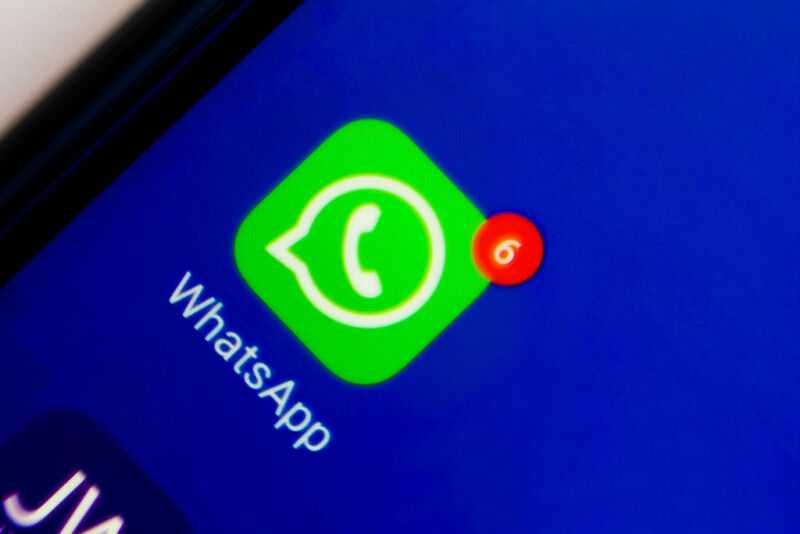
WhatsApp has shut down a complaints helpline set up by the Taliban when it took control of Kabul, after the messaging app came under pressure to block the group from using its services.
The complaints number was supposed to act as an emergency hotline for civilians to report violence, looting or other problems. The Taliban advertised the helpline on Sunday when it captured the city, and has used similar WhatsApp hotlines in the past, for example when it took over the city of Kunduz in 2016.
After taking Kabul, the Taliban pledged to create a stable government and not to harm the “life, property and honor” of citizens.
Facebook, the owner of WhatsApp, said it had blocked the number on Tuesday, along with other “official Taliban channels,” and added that it was actively scanning group names, descriptions and profile pictures on the messaging app to try to prevent the Taliban from using it. It added that its team of native Dari and Pashto speakers were “helping to identify and alert us to emerging issues on the platform.”
Critics in the US have attacked WhatsApp, along with other social media platforms, for not taking more action to shut down Taliban communications.
But experts in the region said that shutting down the WhatsApp numbers was “absurd” and “unhelpful” at a time when the military group was in effect governing the country, and citizens in Kabul were facing looting, panic, and chaos.
“Preventing communication between people and the Taliban doesn’t help Afghans, it is just grandstanding,” said Ashley Jackson, a former Red Cross and Oxfam aid worker in Afghanistan, and author of a book on the Taliban and its relationship to Afghan civilians.
“If the Taliban all of a sudden can’t use WhatsApp, you’re just isolating Afghans, making it harder for them to communicate in an already panicky situation. [WhatsApp’s actions] are really misguided.”
Activists and academics say the group’s leadership pays attention to citizens’ complaints to maintain order, and to keep the Taliban rank-and-file in line.
“It’s long known that the Taliban has these helplines, they advertise them all over the country in response to news articles or NGO complaints about looting, because if there’s one thing they are doing, it is trying to maintain law and order,” Jackson said.
“I know it sounds improbable that these could actually help, but in this really bizarre, fast-moving situation, civilians need all the resources they can get, and this is one of them.”
Masuda Sultan, an Afghan-American entrepreneur and founder of a non-profit called Women for Afghan Women, praised the helpline on Twitter, saying that her office had been looted by 30 criminals calling themselves Taliban. “The complaints commission is asking to speak to them and may come to our office soon,” she wrote.
The WhatsApp helpline advertised in Kunduz in 2016 was used by various NGOs, and even the UN, to complain about—and get back—looted property, such as medical supplies.
Moustafa Ayad, who monitors Middle Eastern extremist group activity online at the Institute for Strategic Dialogue agreed that social media bans of official channels during this period were unhelpful, but warned he would also be wary of how WhatsApp could be misused by the Taliban.
Jackson also questioned the timing of Facebook and WhatsApp’s decision to ban Taliban-related accounts, saying that the US government is still engaged in peace talks with the militant group in Doha, and has signed a diplomatic agreement with its leadership, unlike terrorist groups such as Isis and al-Qaeda. “Why is this coming now, that they are taking power? Why didn’t it come years ago then?” she said.
Facebook said: “The Taliban is sanctioned as a terrorist organization under US law and we have banned them from our services. This means we remove accounts maintained by or on behalf of the Taliban and prohibit praise, support, and representation of them.
“Facebook does not make decisions about the recognized government in any particular country but instead respects the authority of the international community in making these determinations.”
© 2021 The Financial Times Ltd. All rights reserved Not to be redistributed, copied, or modified in any way.